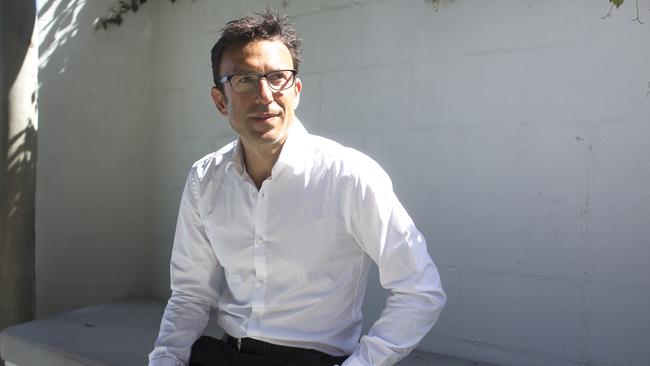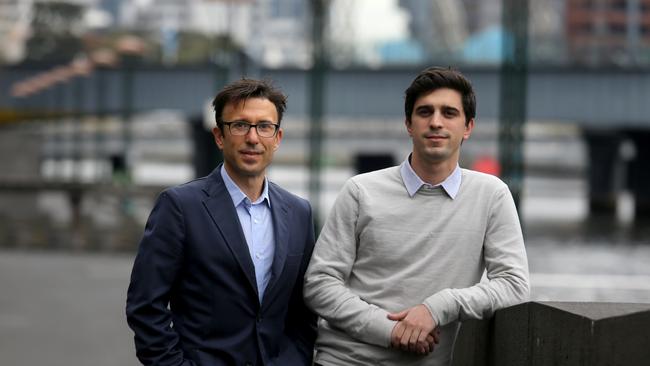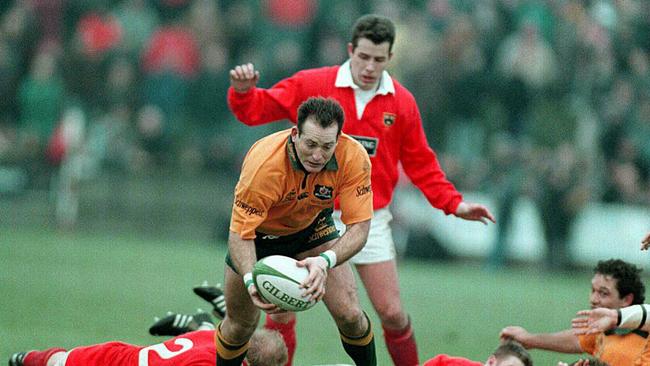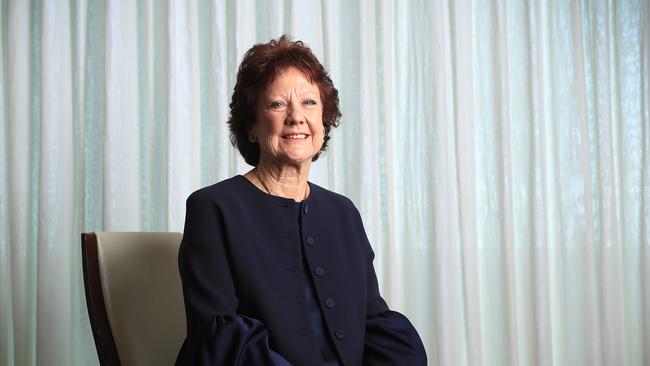
So you want to be a billionaire within seven years or so? Then always put your own rubbish out on bin night.
Don’t outsource it to the kids — they might come across the next big idea, like Afterpay.
Oh, and don’t assume the young bloke across the road is selling drugs if he’s up awake at all hours and dozens of packages are leaving his property early the next morning.
That was the lesson Afterpay co-founder Anthony Eisen had on Friday, during an appearance at a well attended STK business network lunch hosted by AFL club St Kilda in Melbourne.
It was only seven years ago that Eisen and his young co-founder Nick Molnar started Afterpay, now a $34bn behemoth that is going global at a rapid rate.
Every successful business has to start somewhere though, and in this case it all goes back to Eisen working late at night from home, noticing there was always a light on across the road and someone else working — and then a whole lot of goods carried out in boxes each morning.
“This went on for three months. I said to my wife ‘well this is a pretty good neighbourhood but do you think it’s drugs?’ She said ‘no, there’s likely a good explanation’,” Eisen said.
“One night I went out and put the rubbish out. I said to Ron Molnar, my next door neighbour, ‘I don’t mean to be rude but what the hell is going on up there every single night?’ And he said, ‘oh that’s my son Nick’.”

It turns out the younger Molnar wasn’t dealing drugs from home, but was selling jewellery over eBay instead. It took a while longer for Eisen to find out that Molnar was actually selling more jewellery on eBay than anyone else in the country, clearly spending half his nights packaging up all the goods he’d sold to take to the post office the following day.
Molnar would later ask investment officer Eisen for some work experience, they would go on to found Afterpay and the rest is history.
Eisen appeared on stage on Friday with Seek co-founder Andrew Bassat, who is also St Kilda president (Disclaimer: Margin Call was also on the panel).
Bassat is keen for on-field success, but the Saints have their critics after a slow start to the season.
But when asked if fighting off short-sellers who went after Seek last year was a bit like dealing with fans and media types bagging his beloved St Kilda, Bassat chuckled and lapsed into footy-speak and talked about getting your processes right and having good people in place and how results should follow.
Coach Brett Ratten and the team can let out a sigh in relief for now at least, we think.
Heavenly rugby pass

About the only thing Rugby Australia has done right lately is avoid a deal with the embattled Sanjeev Gupta to become major sponsor of the Wallabies, as The Weekend Australian revealed a week ago. But there are plenty of people and private equity types still determined to throw good money at what is the most boring sport on the planet these days (we’re — sort of — kidding, but please can someone run the ball like David Campese used to for our beloved Queanbeyan Whites).
They’re also throwing money at a sport with just about the worst balance sheet in Australia, which is why a little sliver of information contained in the 2020 Rugby Australia annual report released late this week has us intrigued.
Yes, there’s the $27m loss RA made in 2020 and sure there’s a going concern note in there — par for the course now for rugby union — and about $25m in loans from World Rugby and HSBC. There’s also more liabilities than assets on the balance sheet, the accounting equivalent of Jonah Lomu running at you.
All of which has had chairman Hamish McLennan admitting a return to amateurism was even discussed.
So who on earth is behind a $40m offer to shore up rugby’s finances for the next few years, as a little note in the 2020 accounts reveal?
“[RA] has received a conditional offer for a financing facility of up to $40m to ensure the long-term financial viability of the group through to the 2025 Lions tour and beyond,” it says.
Hang on, what? That’s right, someone or something wants to pour tens of millions of dollars into a sport that is, yes, losing tens of millions of dollars annually.
Rugby sure has its issues, but it looks absolutely blessed at times, too.
We’d sure like to know who is behind it, but alas RA sources were shy about the topic when approached on Friday. Answers via email please …
A ‘woo-hoo’ for AMP

AMP is having just about as good a run as rugby union right now, which probably explains why someone was clearly delighted the venerable wealth management firm narrowly avoided a second strike against its pay report on Friday.
AMP held its annual general meeting virtually and there was a clear shriek of delight — sounding like “woo-hoo!!” — audible in the background of the streamed AGM when the second strike vote just failed.
Chairman Debra Hazelton could have been forgiven for being the culprit given all the controversies the AMP board has had to deal with in recent years, but we’re presuming it was someone from human resources or the legal team glad there weren’t more messes to deal with.
Meanwhile, all change at Virgin Australia, where new boss Jayne Hrdlicka has wasted little time putting a broom through the corporate ranks.
Word reached us on Friday of a revamped communications team. Melissa Patch jumps from market darling Afterpay as head of corporate comms, reporting to new general manager Marsha Jacobs, a former journalist. Chris Daffey is leaving a senior adviser role in Prime Minister Scott Morrison’s office to join Virgin as head of government affairs.




To join the conversation, please log in. Don't have an account? Register
Join the conversation, you are commenting as Logout